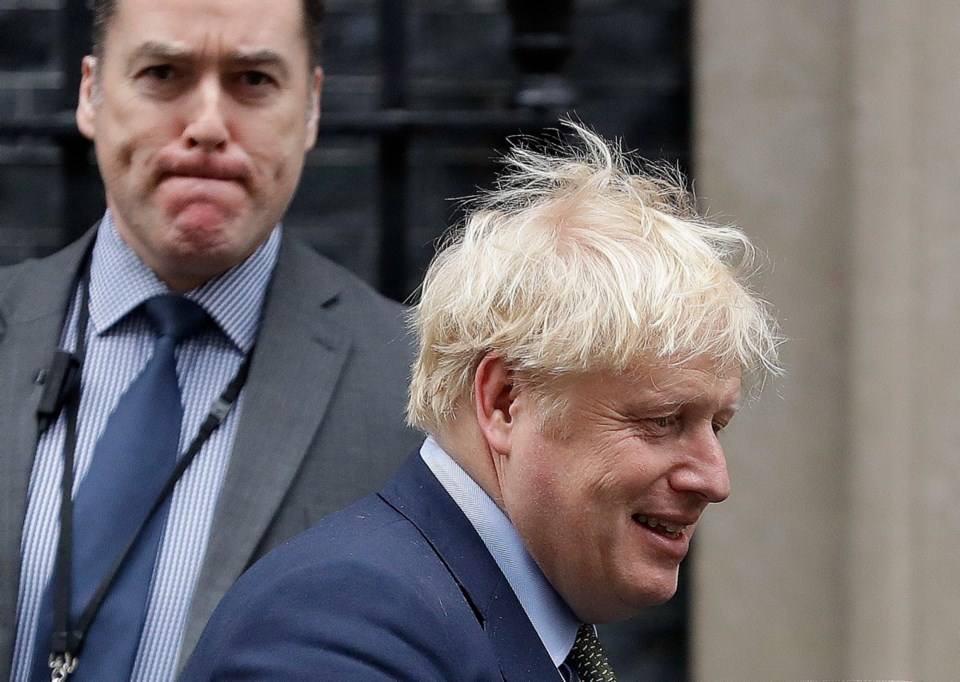The solution to this looming standoff in the United Kingdom is obvious — Scotland needs to move to Canada.
Less than a day after Harry and Meghan won approval to break away from their royal life in the U.K. on Monday, Scotland was summarily denied its chance to stretch its dreams of independence from mother England.
Prime Minister Boris Johnson quashed Scotland’s aspirations for a new referendum in a breezy, one-page note on Tuesday.
“Another independence referendum would continue the political stagnation that Scotland has seen for the last decade, with Scottish schools, hospitals and jobs again left behind because of a campaign to separate the U.K.,” Johnson said in his note to Scottish First Minister Nicola Sturgeon.
He said he’d “carefully considered” the idea over the past few weeks since Sturgeon formally asked, but ultimately decided that since Scotland voted in 2014 to stay in the United Kingdom, he was holding them to that decision.
It’s worth noting that the Queen didn’t apply the same logic to her own deliberations on family independence this week. She didn’t tell Harry and Meghan that they were stuck with the country where they were married in royal style less than two years ago.
Instead, in her own, one-page missive, the Queen declared: “Although we would have preferred them to remain full-time working members of the royal family, we respect and understand their wish to live a more independent life as a family while remaining a valued part of my family.”
Here’s where we are, then, in Britain’s several, concurrently running independence sagas over these past few years: referendums (Brexit, Scottish independence) last forever; centuries-old royal obligations, not so much.
The logic linking these contradictory decisions revolves around populism, which is proving to be a stronger force than rules, duties or obligations — in Britain, yes, but also in the United States, where Donald Trump’s impeachment drama is a daily tug-of-war between populism and the law.
As anyone who has watched all three Netflix seasons so far of The Crown can tell you, the story of the royals over the 20th century was the tension between popular will and age-old tradition. The Queen, who has presided over this rich history, knows better than most how tradition has crumbled and adapted in the face of what the public wants or expects.
Harry and Meghan’s decision to live part of their lives in Canada, as part-time royalty, follows that evolution in the monarchy. Refusing them independence would have cost the monarchy dearly in popular currency.
The situation in Scotland is not that clear, for either side of the independence question. What Johnson has effectively told Scotland is that his popular will — a majority government, elected in December — is more powerful than any simmering desires for independence in Scotland.
We’ll see about that. I grew up with a Glasgow-born dad, and learned early that it’s not a great idea to tell a Scot what they cannot do. There’s a whole wing in Scotland’s national museum devoted to what the Scots invented when thwarted by the odds against them. (Basically, Western civilization.) While it’s been a few years since I covered the last Scots referendum in 2014, I predict that Johnson telling them they can’t have another vote may galvanize the desire to have one.
Scotland, alas, can’t do what Meghan and Harry did — spend a Christmas holiday in Canada and then unilaterally announce plans to cut some ties to Britain.
But the Scottish nationalist forces will be trying to harness the same forces of populism in days and months ahead to cast Boris Johnson and the U.K. as the ancient, rules-bound institutions that need to change.
Meanwhile, where Canada stands in all of this leaving-staying turmoil in Britain is intriguing — beyond being Harry and Meghan’s new part-time home.
The breakaway royals haven’t publicly discussed why they like Canada so much, but some of it must surely be based on the privacy they were accorded when they spent their recent holiday here. As the Times Colonist noted, when finally disclosing that the royals had been spending time there, many people in Victoria were aware that Harry and Meghan were in their midst, but chose not to make a big, public deal of it.
Prime Minister Justin Trudeau and his government like to say (rightly) that Canada remains a country committed to law and the rules-based order. Not the centuries-old rules of the monarchy, perhaps, but clearly some rules of privacy. So amid all the populism sweeping the globe, this could be our new brand. Canada — home to independent-minded people who value their privacy. It might even lure Scotland here, which wouldn’t be the worst thing in the world.
Susan Delacourt is a columnist for the Toronto Star.



